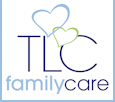How to Prepare and Deal with Flu Season: A Guide for Parents and Nannies
As flu season approaches, both parents and nannies need to be proactive in keeping children, from infants to school-age, safe and healthy. While we can’t completely avoid flu season, there are steps we can take to minimize the risk and manage symptoms if they arise. Here’s a comprehensive guide to help you navigate flu season and protect the kids in your care.
1. Get Vaccinated Early
The flu vaccine is your first line of defense against the virus.
- For infants: Babies under 6 months cannot receive the flu vaccine. However, it’s crucial for those around them (parents, caregivers, and siblings) to get vaccinated to reduce the risk of spreading the virus.
- For children 6 months and older: Ensure they receive the flu vaccine, which is recommended annually. This will help lessen the severity of the flu if they catch it.
Resource: Visit your local pharmacy, pediatrician, or clinic to schedule your flu shots. You can also find more information on the CDC’s flu vaccine resource page.
2. Practice Good Hygiene
Teach kids and caregivers the importance of proper hygiene:
- Frequent Hand Washing: Encourage washing hands with soap and water for at least 20 seconds, especially after coughing, sneezing, or using the bathroom. For infants, ensure caregivers wash their hands frequently, especially before handling the baby.
- Use Hand Sanitizer: Keep alcohol-based hand sanitizers handy for situations when soap and water aren’t available.
- Cough/Sneeze Etiquette: Teach children to cover their mouth and nose with a tissue or their elbow when they cough or sneeze. Dispose of tissues immediately and wash hands.
3. Sanitize Surfaces
Germs can live on surfaces for several hours.
- Clean High-Touch Areas: Regularly sanitize toys, door handles, phones, and other frequently touched surfaces in the home.
- Use Disinfecting Wipes: Keep wipes or disinfectant sprays accessible to clean surfaces multiple times a day, especially if someone is sick.
4. Create a Sick Plan
It’s essential to have a plan in place for when the flu strikes:
- Identify a Sick Area: If a child becomes ill, designate an area where they can rest away from other children to minimize the spread.
- Backup Care: Have a contingency plan for backup child care in case the nanny or parent gets sick.
- Sick Day Essentials: Stock up on essentials like fever-reducing medication (approved by your pediatrician), thermometers, and plenty of fluids like water, broth, and electrolyte drinks.
5. Boost Immune Systems
Help children strengthen their immune systems through:
- Nutritious Meals: Provide meals rich in fruits and vegetables. Foods high in vitamins C and D, like oranges and fortified milk, help boost immunity.
- Proper Hydration: Encourage children to drink plenty of water throughout the day.
- Adequate Sleep: Ensure children get enough rest each night, as sleep plays a vital role in immune function. Babies and toddlers should follow a consistent nap schedule.
- Physical Activity: Keep children active with outdoor play and exercise, which helps support overall health.
6. Recognize Flu Symptoms
Knowing the early signs of the flu can help you act fast:
- Common Symptoms: Fever, body aches, fatigue, cough, sore throat, and a runny or stuffy nose. Children may also experience vomiting or diarrhea.
- Seek Medical Attention: Contact your pediatrician immediately if you notice flu symptoms, especially in infants. Early antiviral treatment can reduce the severity and duration of the flu.
7. Limit Exposure to Sick Individuals
Avoid close contact with people who are showing flu-like symptoms, and keep sick children at home to prevent the spread to others.
- School Guidelines: Most schools have guidelines about keeping children home until they are fever-free for at least 24 hours without medication. This is important to reduce the spread of flu.
8. Keep the Flu at Bay in Group Settings
For those managing daycares or playdates:
- Small Groups: Try to limit the number of children in one setting, especially if flu cases are high in your area.
- Outdoor Activities: Whenever possible, keep playtime outdoors, where germs are less likely to spread.
Final Thoughts: Flu Season is Manageable with Preparation
Dealing with flu season can feel overwhelming, but with the right preparation, parents and nannies can protect children and minimize disruptions. Stay vigilant, keep communication open between families and caregivers, and take action as soon as symptoms appear.
For more flu prevention tips or to find a trusted nanny to help during the busy season, visit TLC Family Care. We’re here to support your family every step of the way.
Stay safe and healthy this flu season!
Resources:
The professionals at TLC Family Care personally assist nannies, babysitters and families in St. Louis, Atlanta, Chicago, Nashville, Memphis, Charlotte, Miami and Orlando to find the right childcare arrangement. Our mission is to provide a safe and personalized approach for families and caregivers to connect with each other that is not an internet search. TLC has worked with families, nannies, sitters, newborn care providers, and tutors for over 35 years and looks forward to working with you! To find great nanny and babysitting jobs visit us at tlc@tlcforkids.com or Call 314-725-5660.
